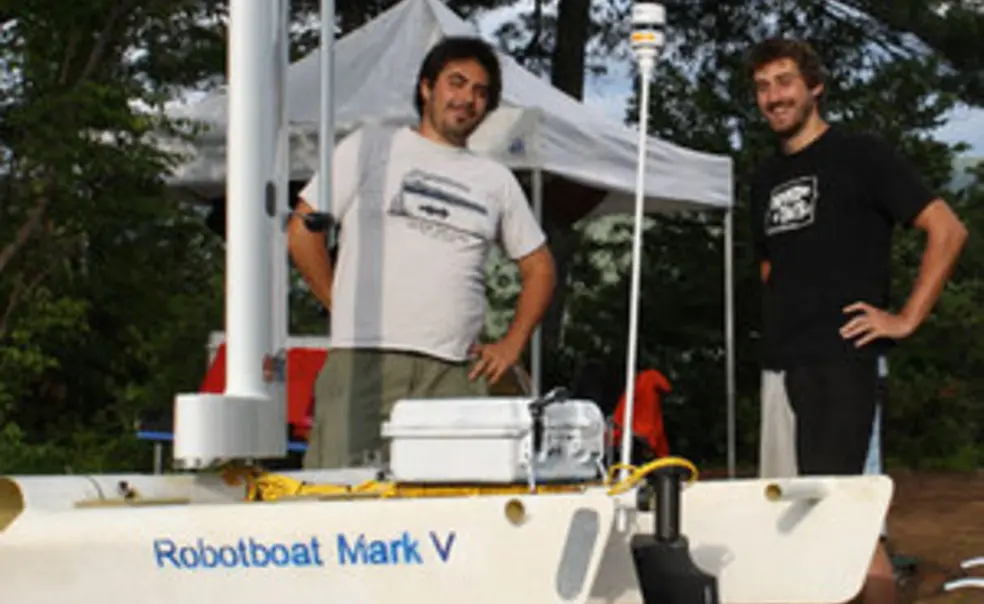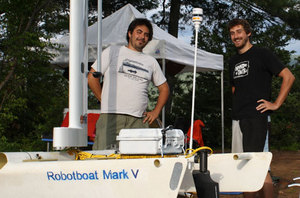Tigers of the Week: Eamon Carrig '05 and T.J. Edwards '06
As any middle-school student can tell you, about two thirds of the Earth is covered by water — a fact that makes studying the world’s oceans a daunting task. But Princeton friends Eamon Carrig ’05 and T.J. Edwards ’06 hope to make that job a little easier by developing an autonomous sailboat (or, ideally, a fleet of them) that would make data collection less labor-intensive and more cost-effective.
Carrig and Edwards work at Autonomous Marine Systems (AMS), a boutique technology start-up in Silver Spring, Md., led by Walter Holemans, founder of the small aerospace firm Planetary Systems Corp. Two other Princetonians, Rob Atkin ’91 and James Nugen ’91, also work for AMS.
The company’s latest prototype, Robotboat Mark VI, has been in the works for a few years, getting a major boost last fall when AMS raised funds using the crowd-funding site Kickstarter.com. “We weren’t quite sure we were going to be a great fit for Kickstarter,” Edwards says, noting that the site’s tech offerings are usually consumer electronics, not scientific-research vehicles. But the company’s pitch — which included catchy lines such as “never send a person to do a buoy’s job” — proved attractive. More than 1,000 donors supported the project, pushing AMS past its $80,000 goal.
Carrig, a philosophy major at Princeton with a broad background in computer programming, works on the boat’s navigation system, setting optimal rudder angles and other orientation details to help it travel from waypoint to waypoint. Edwards, a mechanical and aerospace engineer, works on design features, enabling the boat to right itself when it gets flipped and rolled in rough seas. Both are looking forward to a new round of field testing in the Chesapeake Bay this spring; they hope to demonstrate the technology for oceanographers later this year and eventually send the autonomous boat on a trans-Atlantic voyage. The boat could be used for a range of applications, from measuring pollution to surveying marine life.
Before the launch of AMS, Edwards and Carrig were co-owners in a different kind of start-up: a hostel on an island off the coast of Panama. Running the hostel was an around-the-clock job, Edwards says, with the owners doing “everything from working the desk to quieting the guests at 4 a.m.” But there was downtime, too: Using a computer-aided design program on his laptop, Edwards refined some of the elements now used in the Robotboat prototype.
Do you have a nominee for Tiger of the Week? Let us know. All alumni qualify. PAW’s Tiger of the Week is selected by our staff, with help from readers like you.













No responses yet